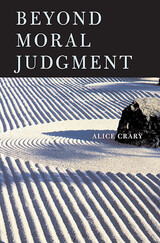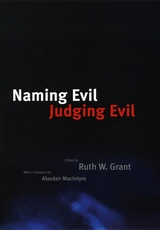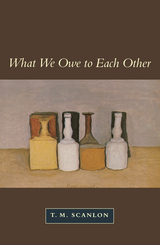
What is moral thought and what kinds of demands does it impose? Alice Crary’s Beyond Moral Judgment claims that even the most perceptive contemporary answers to these questions offer no more than partial illumination, owing to an overly narrow focus on judgments that apply moral concepts (for example, “good,” “wrong,” “selfish,” “courageous”) and a corresponding failure to register that moral thinking includes more than such judgments.
Drawing on what she describes as widely misinterpreted lines of thought in the writings of Wittgenstein and J. L. Austin, Crary argues that language is an inherently moral acquisition and that any stretch of thought, without regard to whether it uses moral concepts, may express the moral outlook encoded in a person’s modes of speech. She challenges us to overcome our fixation on moral judgments and direct attention to responses that animate all our individual linguistic habits. Her argument incorporates insights from McDowell, Wiggins, Diamond, Cavell, and Murdoch and integrates a rich set of examples from feminist theory as well as from literature, including works by Jane Austen, E. M. Forster, Tolstoy, Henry James, and Theodor Fontane. The result is a powerful case for transforming our understanding of the difficulty of moral reflection and of the scope of our ethical concerns.

Is it more dangerous to call something evil or not to? This fundamental question deeply divides those who fear that the term oversimplifies grave problems and those who worry that, to effectively address such issues as terrorism and genocide, we must first acknowledge them as evil. Recognizing that the way we approach this dilemma can significantly affect both the harm we suffer and the suffering we inflict, a distinguished group of contributors engages in the debate with this series of timely and original essays.
Drawing on Western conceptions of evil from the Middle Ages to the present, these pieces demonstrate that, while it may not be possible to definitively settle moral questions, we are still able—and in fact are obligated—to make moral arguments and judgments. Using a wide variety of approaches, the authors raise tough questions: Why is so much evil perpetrated in the name of good? Could evil ever be eradicated? How can liberal democratic politics help us strike a balance between the need to pass judgment and the need to remain tolerant? Their insightful answers exemplify how the sometimes rarefied worlds of political theory, philosophy, theology, and history can illuminate pressing contemporary concerns.

“This magnificent book…opens up a novel, arresting position on matters that have been debated for thousands of years.” —Times Literary Supplement
How do we judge whether an action is morally right or wrong? If an action is wrong, what reason does that give us not to do it? Why should we give such reasons priority over our other concerns and values? In this book, T. M. Scanlon offers new answers to these questions, as they apply to the central part of morality that concerns what we owe to each other. According to his contractualist view, thinking about right and wrong is thinking about what we do in terms that could be justified to others and that they could not reasonably reject. He shows how the special authority of conclusions about right and wrong arises from the value of being related to others in this way, and he shows how familiar moral ideas such as fairness and responsibility can be understood through their role in this process of mutual justification and criticism.
Scanlon bases his contractualism on a broader account of reasons, value, and individual well-being that challenges standard views about these crucial notions. He argues that desires do not provide us with reasons, that states of affairs are not the primary bearers of value, and that well-being is not as important for rational decision-making as it is commonly held to be. Scanlon is a pluralist about both moral and non-moral values. He argues that, taking this plurality of values into account, contractualism allows for most of the variability in moral requirements that relativists have claimed, while still accounting for the full force of our judgments of right and wrong.
READERS
Browse our collection.
PUBLISHERS
See BiblioVault's publisher services.
STUDENT SERVICES
Files for college accessibility offices.
UChicago Accessibility Resources
home | accessibility | search | about | contact us
BiblioVault ® 2001 - 2024
The University of Chicago Press









